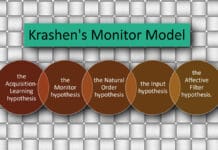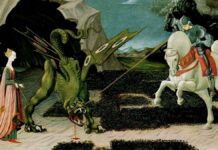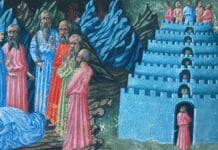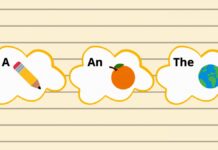Ecclesiastes is a book of the Hebrew Bible. The Hebrew title of the Book is Qohelet, a term related to the verb qāhal, “to gather, assemble.” The English name derives from the Greek translation of the Hebrew title.
The main speaker in the Book, identified by the name Qohelet, introduces himself as the “son of David and king in Jerusalem.” The work consists of personal or autobiographic matter, at times expressed in aphorisms and maxims illuminated in terse paragraphs with reflections on the meaning of life and the best way of life. The work emphatically proclaims all the actions of man to be inherently “vain”, “futile”, “empty”, “meaningless”, “temporary”, “transitory”, or “fleeting,” depending on translation, as the lives of both wise and foolish men end in death. While Qohelet endorses wisdom as a means for a well-lived earthly life, he cannot ascribe eternal meaning. In light of this perceived senselessness, he suggests that one should enjoy the simple pleasures of daily life, such as eating, drinking, and taking enjoyment in one’s wife and work, which are gifts from the hand of God.
According to Talmud, however, the point of Qohelet is to state that all is futile under the Sun. One should, therefore, ignore physical pleasures and put all one’s efforts towards that which is above the Sun. This is summed up in the second to last verse: “The end of the matter; all has been heard. Fear God, and keep his commandments, for that is the whole duty of everyone.”
The Book of Ecclesiastes belongs to the wisdom writings of the Hebrew Bible, along with Proverbs and Job. Most likely, the noun qōhelet designates the function “gatherer.” However, it remains unclear whether the term refers to the author as a gatherer of wise sayings or as a gatherer of persons for instruction. Greek translators interpreted the word to mean ekklēsiastēs, “member of a citizen’s assembly.” Although the Book identifies Qohelet as “king over Israel in Jerusalem,” Solomon, scholars recognize this persona as literary fiction. In the epilogue, Qohelet is called a ḥākām, a “sage” who taught the people.
Date, Provenance and Reception
The lack of specific historical references within the Book makes it difficult to date Ecclesiastes. Consequently, its linguistic profile provides the best clue to the date of composition. The presence of Persian loan words, numerous Aramaisms, and Hebrew expressions and grammatical forms typical of other post-exilic texts makes a date earlier than the mid-fifth century BCE all but impossible. The opinion is divided, however, as to whether the Book is more likely to have been composed during the Persian period (540–332 BCE) or the Hellenistic period (332 BCE–165 CE). A date in the fourth or third century BCE is most likely. Though the date remains somewhat uncertain, the social context of the Book is reflected in the striking use of terms drawn from the commercial world. Ecclesiastes often uses these terms in a derived or metaphorical sense, but the commercial origin of words such asyitrôn (profit), ḥesrôn (deficit), ḥeshbôn (account), and shallît(proprietor) is readily recognized.
Moreover, a number of the sayings concern money and economic relations. Beginning in the Persian period, the economy of Palestine was increasingly monetary and commercial. The competitive economic context of Persian and Hellenistic Palestine was also combined with an autocratic and often arbitrary system of political and economic hierarchy (royal grants, tax farming, etc.) that made it difficult for individuals to have a sense of control over their financial futures. This socioeconomic situation informs the perspective of Ecclesiastes, in which the inability of persons to grasp the world’s order becomes thematic. One of the ways this perspective is manifested in Ecclesiastes is the foregrounding of the contradictoriness of experience.
Not surprisingly, Ecclesiastes was one of the books about whose canonicity certain rabbis raised questions in the late first century CE when such issues were being discussed. The shocking nature of a number of the observations of Ecclesiastes provoked some of the opposition. Besides, the Book’s odd, self-contradictory structure gave pause. As a remark in the Talmud observes, “the sages sought to withdraw the book of Qohelet because its words are mutually contradictory”. Nevertheless, the Book was received as canonical in Judaism and thus in the Christian canon. Ecclesiastes came to be recognized as one of the five Megillot; the scrolls read in connection with the calendar of Jewish festivals. Ecclesiastes is read during Sukkot, the Festival of Booths, presumably because of the connection between the repeated calls of Ecclesiastes to enjoy the present moment and the association of Sukkot with “the season of our rejoicing.” During Sukkot, the Festival of Booths, presumably because of the connection between the repeated calls of Ecclesiastes to enjoy the present moment and the association of Sukkot with “the season of our rejoicing.”
Content and Themes
Although Ecclesiastes is often seen as a heterodox work, it fits nicely into the larger picture of wisdom writings in the ancient Near East. Ancient Near Eastern wisdom was fundamentally concerned with the quest for order in the natural world, especially as that order expresses itself in human experience. While many wisdom texts, such as the Book of Proverbs, express confidence in the human ability to discern and profit by perceiving such an order, many express a sceptical or pessimistic view. These include the Egyptian writings of the dialogue of a Man with his Ba, The Admonitions of Ipuwer, and the conclusion to The Instructions of Ani. In Mesopotamian Wisdom, Babylonian Theodicy and, in particular, The Dialogue of a Master with his Slave articulate scepticism toward discerning the order of the universe. The Book of Job is also among the sceptical works in Israelite wisdom. It is incorrect to see these different opinions representing a chronological movement from confidence to scepticism. It is likely that both the confident and the sceptical perspectives were present within the wisdom dialogue at most times. The particular perspective of Ecclesiastes concerning the accessibility of order in the world is announced in the opening verse of the text. Following the translation of the King James Version, the line is often rendered: “Vanity of vanities, says Qohelet; vanity of vanities; all is vanity.”
The word translated as “vanity” is Hebel, which means “a puff of air.” It is, as C L Seow suggests in Ecclesiastes: A New Translation with Introduction and Commentary, “anything superficial, ephemeral, insubstantial, incomprehensible, enigmatic, inconsistent, or contradictory.… It cannot be grasped —either physically or intellectually”. Thus, Ecclesiastes does not deny that there is an order to the world—indeed, he often suggests that there is—only human knowledge cannot grasp it. Consequently, translators sometimes render Hebel by such terms as futility or even absurdity. The conviction of Ecclesiastes that humans cannot get the order of the world helps make sense of a frequent literary strategy used in the Book in which two sayings that contradict one another are placed side by side. Exposing contradictions about how the world is experienced demonstrates the elusiveness of any intellectual or moral order.
Moreover, it also explains why his judgment concerning the utility of wisdom is so mixed. In some cases, wisdom may be an advantage, but in others, it affords no advantage. Hence, people cannot control their futures by discerning the right deed for the right time. For this reason, Ecclesiastes often characterizes people’s work in their lives with a word with negative connotations, ʿamal, meaning “burdensome toil.” Similarly, Ecclesiastes notes that although God is just, injustice is often present. Death becomes symbolic of the inability of humans to grasp any meaningful order since “the same fate comes to all”, whether they are wise or foolish, good or evil, religious or not. Like the order of the world, God remains inscrutable for Ecclesiastes. Although much that Ecclesiastes says about God would be at home in Proverbs, he differs from that Book in stressing the radical transcendence of God (“God is in heaven and you are on earth”). God should be feared rather than loved like an imperial monarch in the Persian or Hellenistic period.
Despite the conviction of Ecclesiastes that the order of things cannot be understood and used to human advantage, he addresses the concern of traditional wisdom for how to live appropriately in the world. Consistent with his analysis of the inability of persons to control their futures, Ecclesiastes endorses taking pleasure in the moment at hand. One should enjoy eating, drinking, being festive, loving one’s spouse, and working on the task. However, this is not in one’s power but is frequently described as God’s “gift” or a person’s “portion” from God. Although this advice differs from what one finds in other Israelite wisdom texts, it is traditional wisdom, closely parallel to the Mesopotamian Gilgamesh epic. Thus, Ecclesiastes should not be seen as representing a crisis in Israelite wisdom, as is sometimes suggested, but rather as articulating the sceptical or pessimistic strand of traditional ancient Near Eastern wisdom.






























